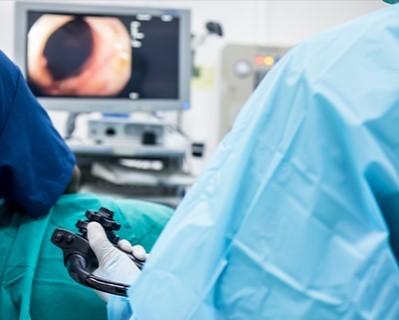Colonoscopy
Purpose: Screens for colon cancer and diagnoses various gastrointestinal issues.Procedure: A long, flexible tube with a camera (colonoscope) is inserted through the rectum to examine the colon.
Note: The information provided here applies to elective colonoscopy procedures under standard conditions. However, specifics may vary depending on individual patient factors, such as the presence of gastrointestinal conditions, patient tolerance, or any complications that might arise during or after the procedure. The patient’s overall health, the complexity of the examination, and the need for additional interventions, such as polyp removal, can also influence the procedure and recovery process.
Inpatient/Outpatient
Colonoscopy is typically performed as an outpatient procedure. It is minimally invasive, and most patients can return home the same day. The procedure is usually conducted in a hospital or specialized clinic, and patients are monitored for a short period afterward to ensure they recover safely from sedation.
Hospital Stay Duration
Patients undergoing colonoscopy generally do not require an overnight hospital stay. The procedure itself usually takes about 30 minutes to 1 hour, depending on the findings and whether any polyps are removed or biopsies are taken. After the procedure, patients are monitored until the effects of sedation wear off, and they are usually discharged within a few hours.
Type of Anesthesia
Colonoscopy is usually performed under conscious sedation, which helps relax the patient and minimize discomfort while allowing them to remain partially awake. In some cases, deeper sedation or general anesthesia may be used, depending on the patient's preference or medical condition.
Travel After Procedure
Patients are generally advised to avoid driving and long-distance travel for the remainder of the day after the procedure, especially if sedation was used. It is recommended that patients have someone accompany them to drive them home. Most patients can resume normal activities the following day, but they should follow specific recommendations from their healthcare provider regarding activity levels and travel.
Pre-procedure Preparation
Preparation for colonoscopy involves a bowel prep to clear the intestines, which is essential for obtaining clear views during the procedure. This typically includes following a clear liquid diet the day before the procedure and taking a prescribed laxative solution to clean out the colon. Detailed instructions will be provided by the healthcare provider, and it is important for patients to follow them carefully to ensure the success of the procedure.
Procedure Duration
The colonoscopy procedure typically takes about 30 minutes to 1 hour. The duration may be longer if polyps are removed, or biopsies are taken during the examination. The colonoscope is inserted into the rectum and guided through the colon to examine the lining for any abnormalities.
Recovery Time
Recovery from colonoscopy is generally quick, with most patients able to resume light activities within a few hours after the procedure. If sedation was used, patients should rest for the remainder of the day and avoid making important decisions or operating heavy machinery. Full recovery and a return to normal activities usually occur the following day.
Estimated Cost
The cost of colonoscopy can vary depending on the clinic, geographic location, and whether any additional procedures, such as polyp removal or biopsy, are performed during the examination. For accurate cost information, patients should contact their healthcare provider or treatment center directly.
Post-procedure Care
Post-procedure care for colonoscopy includes monitoring for any signs of complications, such as persistent abdominal pain, bleeding, or fever. Patients may experience some bloating or discomfort due to air introduced into the colon during the procedure, but this usually resolves quickly. If polyps were removed or biopsies taken, patients will be given specific instructions on when to resume regular activities and diet. Follow-up appointments may be necessary to discuss the results of the colonoscopy and any further treatment if abnormalities were found.

